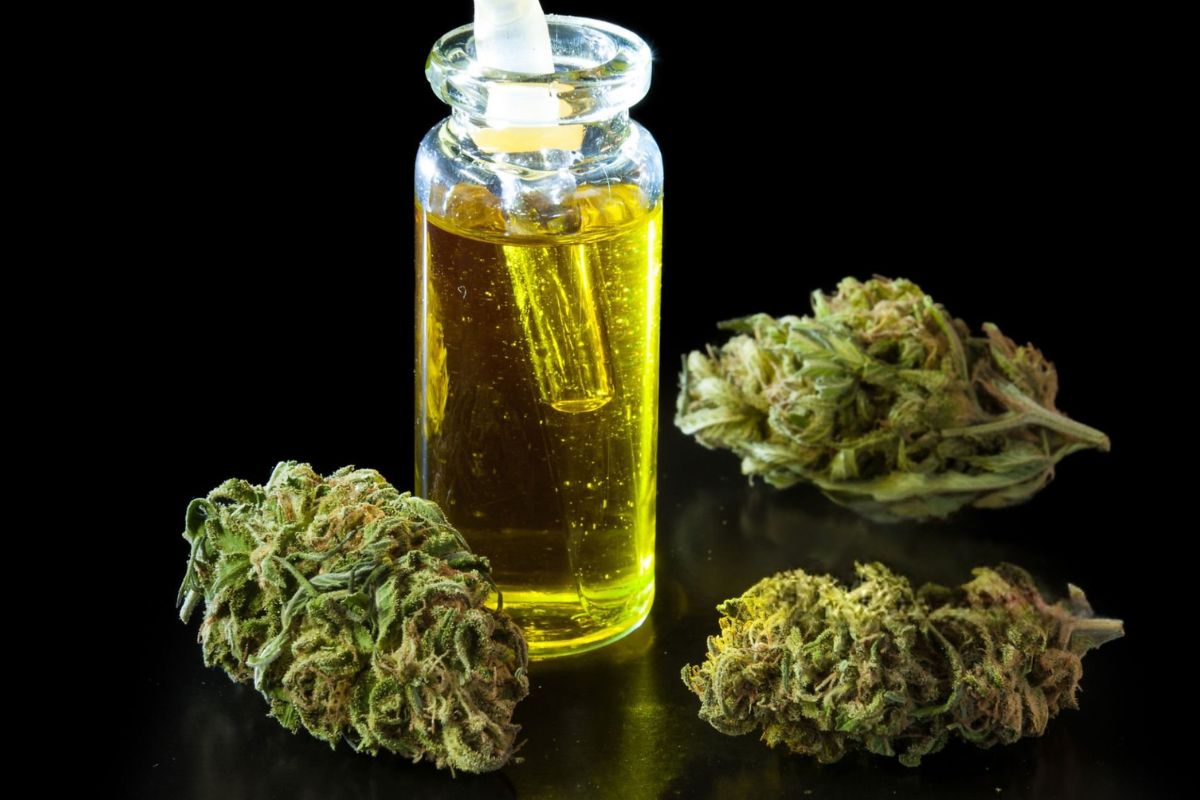Is Delta-11 Legal in Illinois? Understanding State Cannabis Laws
Diving into the world of cannabinoids? It’s a bit like unlocking a mystery, especially with how quickly pot rules are changing. Sitting around in Illinois, thinking about delta-11-tetrahydrocannabinol, or just delta-11 THC? This one’s a bit of an oddball relative to delta-9 THC, the star of the show in weed, but it brings its own flair. Here’s the scoop: across the states, delta-9 THC is pretty much off-limits, but if your hemp treats pack less than 0.3% of it, thanks to the 2018 Farm Bill, you’re in the clear. But, here’s the kicker: That same bill kinda leaves us hanging when it comes to all the other members of the cannabis clan, making delta-11 THC a head-scratcher for many. If you’re scratching your head over the cannabis rules in Illinois, stick around! You’re on the brink of discovering why unraveling this tangled tale is challenging but oh-so rewarding.
Table of contents
In the case of Illinois, the state has its own set of regulations pertaining to cannabis and its derivatives. Since the state legalized marijuana for recreational use in 2020, residents have gained legal access to various forms of THC. When considering the legal framework for cannabinoids such as delta-11 THC, it is crucial to examine both state and federal laws to determine their legality.
Your understanding of the status of delta-11 THC in Illinois should take into account the nuances of state legislation. It’s important to stay informed about current laws, as they can frequently change and might have specific stipulations regarding the production, sale, and possession of different cannabinoids, including delta-11 THC. Always ensure you are up-to-date with the latest legal information to navigate the complex landscape of cannabis regulations in Illinois.
Legal Status of Delta-11 THC in Illinois
Delta-11 THC, a cannabinoid similar to Delta-8 and Delta-9 THC, falls under a complex legal framework in Illinois. You need to understand that while hemp-derived products were made federally legal through the 2018 Farm Bill, individual states have the ability to regulate or ban specific cannabinoids.
In Illinois, the state law aligns closely with federal law. The production and sale of hemp and its derivatives are legal, provided they contain less than 0.3% Delta-9 THC, the primary psychoactive component in cannabis. This means that hemp-derived Delta-11 THC could be considered legal if it complies with these regulations.
However, the state’s Controlled Substances Act could place certain cannabinoids, including Delta-11, in a gray area if they are synthetically derived rather than extracted directly from legal hemp — as such processes could potentially alter their legal status.
Furthermore, the legality of Delta-8 THC, often considered a close relative to Delta-11, has been subject to scrutiny and debate across the United States, suggesting that similar legal challenges may apply to Delta-11 THC.
To summarize:
- Hemp-derived Delta-11: Legal in Illinois if it contains less than 0.3% Delta-9 THC.
- Synthetically derived Delta-11: May face legal challenges under the Illinois Controlled Substances Act.
- Legal developments: Stay informed, as state and federal laws could change, affecting the legality of cannabinoids like Delta-11.
You should always check the most recent legislation and consider consulting with a legal expert to understand your rights regarding the possession and usage of Delta-11 and other hemp-derived products in Illinois.
Understanding the Different THC Isomers
As you explore the landscape of THC products, it’s crucial to differentiate between the various isomers of tetrahydrocannabinol (THC). These distinct compounds, derived from the cannabis plant, each have unique chemical structures and potential legal statuses depending on the jurisdiction.
Delta-8 THC
Delta-8 THC is a cannabinoid that occurs in small quantities within the hemp plant. It’s chemically distinct from Delta-9 THC, its more abundant cousin, due to the placement of a specific bond in its molecular structure. Delta-8 THC is noted for its more mellow and less psychoactive effects compared to Delta-9 THC. Despite its presence in both the hemp and cannabis plants, its legality can vary with evolving laws and interpretations of hemp-derived products.
Delta-9 THC
Delta-9 THC, the most well-known cannabinoid, is associated with the psychoactive properties of cannabis. It’s abundant in the cannabis plant and is the primary compound responsible for the classic “high” experienced by users. While Delta-9 THC is federally illegal in the United States under the Controlled Substances Act, numerous states, including Illinois, have passed laws legalizing its use for medical or recreational purposes.
Delta-10 THC
Delta-10 THC is another cannabinoid similar to Delta-8 and Delta-9 but is less common. It also has a different molecular structure, which influences how it interacts with the body’s endocannabinoid system. Delta-10 THC is often synthesized from other cannabinoids because it appears in such low concentrations in the cannabis plant naturally. While there is less research on Delta-10 compared to Delta-8 and Delta-9, it is gaining attention for its unique effects.
Asyou navigate the complex world of THC and its legality, always ensure you are informed about local and state laws, as they can greatly impact the types of THC products that are legally accessible to you.
Regulatory Perspective
Your understanding of the legality of Delta-11 in Illinois requires navigating through the intertwined layers of federal and state regulations. The following subsections detail the legislative framework dictating the status of hemp derivatives, Illinois’s own regulatory measures, and the DEA’s position on THC isomers.
2018 Farm Bill and Hemp Derivatives
The 2018 Farm Bill was a pivotal federal law that distinguished hemp from marijuana by its delta-9 THC content, deeming hemp and its derivatives with less than 0.3% delta-9 THC as legal. This definition opened the door for the legality of hemp-derived compounds, including various THC isomers, as long as they fall within this THC threshold. However, ambiguity remains about the legal status of psychoactive isomers like Delta-11 under federal law.
Illinois State Regulations
In Illinois, the state law aligns with the federal definition of industrial hemp, permitting the production and sale of hemp and its derivatives. The Illinois Cannabis Regulation and Tax Act does not explicitly mention Delta-11 THC but given that it falls within the category of hemp derivatives as per the 2018 Farm Bill, and as long as it adheres to the THC content limit, it is not addressed as a controlled substance at the state level.
DEA Stance on THC Isomers
The DEA classifies substances under controlled substances schedules. Under these classifications, any synthetically derived tetrahydrocannabinols remain illegal. This creates a gray area around THC isomers that are not directly extracted but rather converted from CBD. The DEA has not provided clear guidance on Delta-11, specifically, but its stance on synthetically derived isomers suggests scrutiny and potential federal legal challenges.
Remember that regulatory interpretations can evolve, and it’s important to stay informed about the most current laws. Keep an eye on both federal and state regulations to ensure compliance.
Comparison of THC Effects
This section examines the specific effects of THC, focusing on its psychoactive properties, potency levels, and the euphoric sensations it can generate.
Psychoactive Properties
Delta-9-tetrahydrocannabinol (Delta-9 THC) is the most well-known psychoactive component of cannabis, interacting with your brain’s cannabinoid receptors to produce altered states of consciousness and perception. Delta 11 THC, although less researched, is also psychoactive, suggesting it has the capacity to affect your cognitive and psychological state.
Potency Levels
Delta-9 THC is prominently recognized for its strong psychoactive effects. The potency of Delta-11 THC, however, is not as well-documented, and research is ongoing to determine its exact strength compared to Delta-9 THC. Some studies suggest that analogs of THC, such as Delta-11, may exhibit varying levels of potency, contributing to the complexity of their impact on your body.
Euphoric Effects
The euphoric high associated with cannabis can differ significantly between its various compounds. While Delta-9 THC is acclaimed for its powerful, mood-lifting effects, the euphoria from Delta 11 THC may vary. Your experience of euphoria can also depend on the specific strain and its balance of cannabinoids.
Consumer Safety and Legal Considerations
In Illinois, the legality of Delta-11 and its implications on consumer safety are significant. These concerns affect not just individual use, but also how the substance is regulated within the industry.
Drug Test Implications
If you consume products containing Delta-11, it’s important to know they may yield positive results on drug tests. This is due to the presence of metabolites in your system that drug tests are designed to detect.
Safety and Side Effects
The safety profile and potential side effects of Delta-11 are critical for informed use. Like other cannabinoids, Delta-11 can cause psychoactive effects, and it should be used with caution, especially if you have underlying health conditions.
Market Availability
Delta-11 is a regulated substance within Illinois’ cannabis industry. Hemp products containing less than 0.3% THC on a dry weight basis are legal, but it is paramount to purchase from reputable manufacturers or producers to ensure compliance with state laws and consumer safety.
Implications for Hemp Industry
As you explore the hemp industry’s landscape, it’s crucial to understand how delta-8 and other hemp-derived THC compounds, such as the lesser-known delta-11 THC, affect the market dynamic. The legality of such compounds can influence product development and state regulations.
Product Varieties
The hemp industry has diversified its product line to meet consumer demand, which includes various forms of cannabinoids. While delta-9 THC is commonly associated with marijuana, products containing delta-8 and potentially delta-11 THC represent a new niche. From edibles and gummies to flower, the range is expanding. However, the production and sale of these products hinge on the legal status of hemp-derived THC. Hemp can be transformed into countless products, but the presence of any THC variant pushes legal boundaries.
State-by-State Legal Variances
The United States sees a state-by-state variance in the legality of hemp-derived products. While some states have embraced the hemp industry at large, others have specific stipulations or outright bans on certain cannabinoids. You must stay informed as some states have not aligned with federal regulations, which can impact the market availability of products like hemp-derived delta-8 and potentially delta-11 containing items. For example, some states may allow products with delta-8 THC derived from legal industrial hemp, yet the same compounds might be restricted elsewhere. Always check your state’s stance on hemp and its derivatives to comply with local laws.
Legal Dynamics in Other States
When exploring the legal landscape of cannabinoids like Delta-11, it’s crucial to recognize that state laws vary significantly. In New York, for example, recent legislation has opened the doors to a more liberal approach to cannabis and its derivatives. Meanwhile, New Jersey has established a regulated market, which includes detailed standards for legal cannabinoid products.
In contrast, states such as Ohio and Oklahoma have their own unique regulations regarding cannabinoids that may differ from federal guidelines. Notably, Ohio has a medical marijuana program in place, but legal specifics can change rapidly, so you should consult the state’s regulatory framework for the latest.
Pennsylvania, Virginia, and West Virginia each have distinct legal frameworks in place for cannabis and its derivatives. These states have mechanisms to modify their laws, which could further alter the legal status of substances like Delta-11.
The table below provides a quick glance at the legal status of cannabinoids in a few key states:
| State | Legal Status |
| Florida | Regulated Market |
| Texas | Restricted Legal Status |
| California | Broad Legal Acceptance |
| Missouri | Medical Program in Place |
It’s imperative to verify the current laws in your state, as they can impact the legality of possessing and selling Delta-11 and related compounds.
Remember, laws surrounding cannabis and its many derivatives are evolving, and what holds true today may change. For specific state legislation, consult the official state government or legal counsel familiar with local cannabinoid laws.
Medical Marijuana and Hemp-Derived Products
In Illinois, you have access to both medical marijuana and various hemp-derived products. Medical marijuana, available to patients with qualifying conditions, contains cannabinoids such as THC (tetrahydrocannabinol) and CBD (cannabidiol). Hemp products, which come from the same plant family as marijuana, have a delta-9 THC concentration of not more than 0.3% on a dry weight basis, making them legal at the federal level.
Medical Marijuana:
- Legal with a qualifying condition and a state-issued medical card.
- Contains higher levels of THC.
- Benefits: May provide relief from chronic pain, reduce anxiety, and improve symptoms associated with various medical conditions.
Hemp Products:
- Legal to possess and consume under federal law.
- Mostly contain CBD, with legally permissible traces of THC.
When considering the legality of hemp-derived THC compounds like delta-8 or the less common delta-10, it’s important to verify state laws, as regulatory approaches can differ. Hemp-derived products have been largely unregulated, leading to a variety of products on the market. Illinois has taken steps to tax cannabis derivatives, indicating a structured approach to these substances.
Be aware that the legal landscape is complex and evolving. For the latest information on the legality of delta-11 or any other hemp-derived THC in Illinois, always check with state resources or legal guidance to ensure compliance with current laws.
Future Outlook
When assessing the future of Delta-11 in Illinois, your focus should be tuned to several intersecting factors: legality, industry trends, regulatory shifts, and scientific developments in cannabinoids.
Legality: As of now, Delta-11 is not explicitly mentioned in most state laws, including Illinois. However, if Delta-11 is structurally similar to other THC analogs that fall under the controlled substances list, it may face legal scrutiny. You should keep an eye on federal legal pronouncements as they will greatly influence state law and the compound’s legality.
- Regulations: Tightening regulations could emerge as the understanding of Delta-11’s psychotropic effects grows clearer. If seen as akin to Delta-8 or Delta-9 in its effects, Delta-11 could very well be subjected to similar state regulations that govern the adult use of cannabis.
Industry: Should Delta-11 remain in a legal gray area, the cannabis industry may continue to manufacture and sell it. Manufacturers might market Delta-11 as a legal alternative to other cannabinoids, potentially expanding its presence in Illinois.
- Cannabinoids: Ongoing research into cannabinoids will likely influence the fate of Delta-11. Discoveries related to its efficacy, safety, and potential therapeutic benefits may sway both public opinion and regulatory decisions.
For manufacturers, staying ahead of the curve is vital. They must closely monitor scientific studies on cannabinoids and adjust their strategies in line with the latest federally and state-mandated guidelines to remain compliant.
In summary, your attention to shifts in legal interpretations, market dynamics, and scientific insights will be critical to navigate the unfolding scenario surrounding Delta-11.
Frequently Asked Questions
Before diving into specific FAQs, it’s important to understand that the legality and effects of Delta 11 products can vary, and it’s essential to be informed about state-specific regulations and the chemical properties of Delta 11.
What are the legal implications of purchasing Delta 11 products in Illinois?
Purchasing Delta 11 products in Illinois would be subject to Illinois state law. It’s crucial to stay updated on the state’s legislation regarding such substances, as laws can change and may vary depending on the structural analogs of THC.
Can Delta 11 compounds result in a failed drug test?
Yes, consuming products containing Delta 11 can potentially lead to a positive drug test, as current tests often cannot distinguish between different THC analogs.
Are there differences in potency between Delta 11 and Delta 9?
The potency of Delta 11 compared to Delta 9 can vary, with some anecdotal reports suggesting differences in effects and intensity. Structurally similar, they may also produce comparable psychoactive effects.
How does Delta 11 compare to Delta 10 in terms of strength?
When comparing Delta 11 to Delta 10, it’s suggested that Delta 11 could have a higher potency, but individual experiences may vary, and comprehensive research is lacking.
What should one expect from the effects of consuming Delta 11 gummies?
After consuming Delta 11 gummies, one might experience effects similar to other THC analogs, such as euphoria or relaxation. Again, the individual response can vary widely based on several factors.
What is the availability and accessibility of Delta 11 in Illinois?
The availability of Delta 11 in Illinois is determined by state law and the current market. Checking with local dispensaries or online shops would provide information on accessibility within the state.







